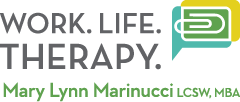It was the toughest question I faced.
My career change progressed through several phases:
Phase 1 was a years-long process during which I became miserable and, ultimately, burned out in my corporate career.
During Phase 2, I explored the idea of changing careers.
I participated in helpful workshops, consulted useful books and blogs and opened up to wonderful coaches.. Through this work I became more aware of my strengths, interests, values and aptitudes. I learned how to identify and explore fields and roles that professionals ‘like me’ found fulfilling. I became more hopeful that positive change was possible.
With the benefit of hindsight, I see now that all this work helped me answer the question “what could I do next?”
Phase 3 came next – the phase I call “well, now what?”
Thanks to all my diligent effort and help from vital resources, I was clearer on what my next career could be. But I was still left with the vexing question “yeah, but should I change careers?”
When deciding whether to change careers, I was stuck, I was stymied and I was alone.
I had success in my former career. There were parts of it I enjoyed. It was lucrative. I’d done it for years. Was it the right move to walk away from it?
I sought help to decide whether I should change careers. I found little more than unproven conventional wisdom (“leap and the net will find you!” “trust your gut!”), pressure (“what are you waiting for?”) or restatements of the obvious (“at the end of the day, only you can decide.”)
I say we can do better.
It may be true that only you can decide whether to change careers but I believe we can do better. That’s why I developed a unique approach to help professionals in any field and at any stage of the career process – from curious to committed.- decide whether a career change could be right for them.
It’s called Considering Career Change
Different from the work of understanding what career could be next, in Considering Career Change I show professionals how to apply established principles and proven best practices to get clear on whether a career change could be right for them.
By illuminating common causes of career change inertia, my approach can also help professionals considering career change get unstuck, gain momentum and sidestep career change pitfalls.
Therapy? For a career change?
Think of it as due diligence for career change.
Fundamentally, therapy offers the opportunity to get to know yourself better. I help professionals consider what’s worth knowing about themselves and their work so they can make a more informed career change decision.
My unique framework, offered in group and individual sessions.
When I work with professionals who are considering career change, we start by applying principles from management to take a fresh look at what they currently do for a living and what problems career change could solve.
We tap into principles from finance to explore and understand their potential career change risks and rewards.
To address one of the most frequent career change questions I hear – “how can I avoid experiencing the same old problems in a new career?” – I help them learn more about who they are at work (after all, history has a way of repeating itself until we take time to understand how and why).
We cut through the noise of commonly held, frequently quoted opinions and beliefs (“change is good!”) and take a critical look at what we accept as true and what is best to discard. Clients emerge with their own meaningful set of guiding principles to anchor them through the process of considering career change.
Consider this:
When it comes to career change, a vital question is “what could I do next.”
An equally vital, often vexing question is “yeah, but should I change careers?”
Where to start, what to do and how to know whether career change is right for you.
If you’re considering career change, get in touch to explore how we may work together. I’m here to help.

Recent Posts
Work Life Balance
My best advice? Ditch the cliche and let me help you get back to the fundamentals.
Who Are You At Work?
Taking a deeper look at your professional identity will change your perspective. And your outcome.
Coping Through Chaos
Where to start and what to do so you can cope effectively when chaos comes home.



